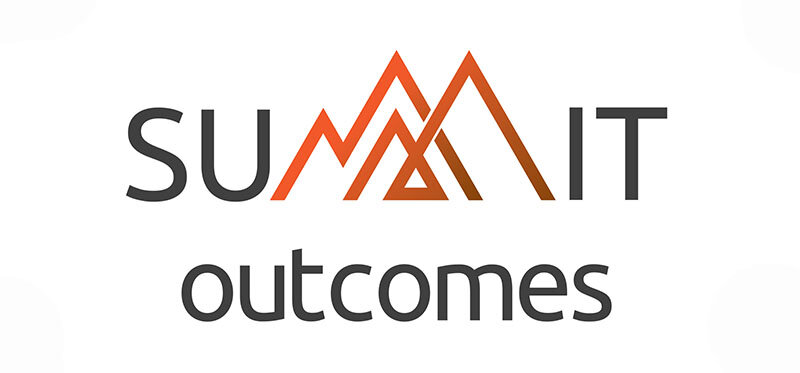Outcome of the Shared Value of the SDGs
On the 5th July, we continued with a 3rd session of our regular community of practice workshops aimed at investigating immediate challenges and issues that face us, with a view to developing and facilitating the implementation of practical solutions.
At our first meeting, we began with a consideration of South Africa’s current water crisis. This lead, at our 2nd session, into a discussion of the urbanization mega-trend in the light of a changing climate. A common problem that emerged at both these workshops, was the challenge of how to scale up investment in, and thereby implementation of, sustainability solutions.
Noting that in developed and emerging country economies some 80% of the financial capital is located in the private sector. This pattern is confirmed by the World Bank statistic that of the worlds’ 100 largest economies only 31 are countries while 69 are corporations.
If the real scaling up dilemma is largely a financial investment issue and given that the vast majority of finance is controlled by BUSINESS, we decided that this should be the focus of our 3rd workshop.
Our specific focus was to explore the, increasingly adopted, business strategy concept of “shared value” in the context of SDG implementation. We wanted to assess whether the “shared value” concept presented real opportunities for the South African private sector to contribute meaningfully to the sustainable socio-economic transition of our country. If so, what could we do, as a community of practice, to facilitate this!
We had extremely stimulating discussions drilling down into whether or not the concept could be adapted for wide scale adoption in South Africa. The discussions included a consideration of:
Global business condition trends currently undergoing powerful changes, including that:
The Task Force on Climate-related Financial Disclosures(TCFD) established by the Financial Stability Board (FSB) has recommended company disclosure of climate change risk;
Resulting in many investors and corporations starting to recognise the high degree of risk that climate change poses for their business model;
Morgan Stanley reports that their Private Investors are now directing new investments into “green” companies. But they have not yet begun divesting from existing “unsustainable” companies;
However, the ship is starting to turn; for example
Swiss Re, the world’s largest re-insurer, will no longer provide cover for companies that have more than 30% of their business in thermal coal across all lines of business;
Sovereign funds are divesting from mining operations;
China is leading the world with action to seriously address their environmental impacts, including the establishment of a national carbon market. This has been prompted by a realization that, on its’ current trajectory, it would have an ecological footprint equal to 3 planets by 2100, which would destabilize its’ current political, social and economic system;
South Africa’s needs and unique circumstances, noting that:
We have the highest Gini Coefficient, indicating that South Africa is the most unequal society in the world;
Three (3) provinces have poverty levels and related social conditions of Special Underdeveloped Zones where 50% or more of the population live below the poverty line defined for national reporting under SDG Goal 1. These areas share socio-economic characteristics similar to countries in the Least Developed Country bracket;
This introduces a spatial element to the absolute need for urgent action that contributes to addressing the extreme levels of inequality and creating jobs in South Africa;
The biggest problem in South Africa is firstly the action and support for the creation of more value and then how to share that value more equitably.
The Applicability of the “shared value” business strategy towards a just socio-economic transition in South Africa as envisaged by the 2030 Sustainable Development Agenda and its’ SDGs, include that;
It is clear that the full participation of business in the transition is required as they control the allocation the vast majority of the financial capital;
In this context, the “shared value” business strategy is a paradigm shift – from the inward focused Corporate Social Responsibility investment in short term social project objectives – to a broader understanding of value in terms of all forms of capital (financial, manufactured, human, intellectual, social and natural capitals) and fully integrating social investment into the core of the business model to create long term sustainable shared value across these 6 forms of capital;
However, given the urgency of action required in South Africa, there was much debate on whether the shared value approach represents a sufficient “revolutionary” approach as opposed to a more status quo “evolutionary” approach;
Opportunities for the adoption of the “shared value” approach by the South African private sector, including that:
Government has a big role in bridging the current trust deficit blocking sustainability investment, by shifting its regulatory approach to be more facilitative in nature and create policy certainty to guide business investment;
The current legal requirement for CSR investment amounts to some R500 billion per year, but is not currently aimed at contributing to South Africa’s just transition as stipulated in the NDP and the SDG’s;
Facilitating the broad adoption of the integrated shared value approach by individual companies presents substantial opportunity to redirect their CSR investments programmatically in order to reinforce the “shared value” proposition and implement the SDG’s relevant to the company’s business model and contribute to our just transition;
This can be supported by the wide use of standardized ESG reporting that is independently measured and based on internationally published metrics;
Finally, we recognized that the future will be shaped by the youth and that their mindset appears to be substantially different. In the context of the 4th Industrial Revolution that is being driven by disruptor technologies and perspectives of the youth, we noted that our future work on South Africa’s just transition must include input from the youth.
by: Jessica Wills

